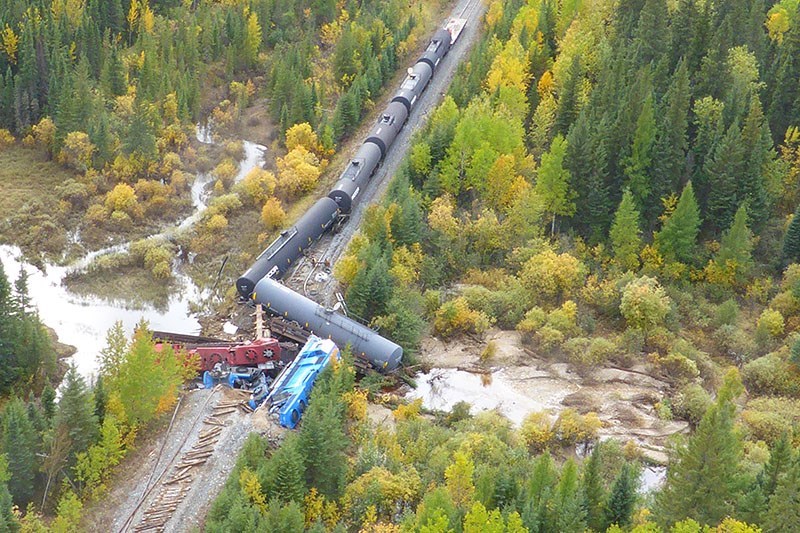An inquest into the death of a man who was trapped for hours in a train following a 2018 derailment near Ponton won’t look at all the circumstances surrounding the crash, but mainly those surrounding emergency services’ response, a judge has ruled.
Provincial court Associate Chief Judge Malcolm McDonald issued a ruling on the scope of the inquest into the September 2018 death of 38-year-old Kevin Anderson from The Pas on Aug. 31.
Anderson’s family, the Northern Regional Health Authority (NRHA) and the Teamsters Canadian Rail Conference (TCRC) – the union to which Anderson belonged – had argued that the inquest should investigate the circumstances of the derailment on the Hudson Bay Railway (HBR) near Ponton. The HBR, former rail line owner OmniTrax and the inquest counsel said the proceeding should abide by the scope set out by the chief medical examiner (CME) who ordered the inquest.
McDonald’s ruling noted that the circumstances of the derailment have already been investigated by Transport Canada and the Transportation Safety Board of Canada (TSB), which found that the train derailed when it hit a section of track that was unsupported due to a culvert and the rail bed being washed out by high water.
The accident was discovered around 5:30 p.m. on Sept. 15, 2018 by a helicopter pilot flying over the area. Thompson Fire & Emergency Services and other agencies, including the RCMP, responded to the crash but paramedics did not begin attending to Anderson and the 59-year-old engineer – the only other person on the train – until nearly midnight because the train was transporting fuel and the accident site had to be declared safe first. Anderson died about an hour after they arrived, never having been extracted from the wreckage. The engineer was freed around 2:30 am. and taken by helicopter to Thompson General hospital for treatment.
“The heartbreaking fact is that Mr. Anderson’s injuries, had there been appropriate medical intervention, were probably survivable in the opinion of the CME,” McDonald wrote.
The judge also said that expanding the scope would involve calling more witnesses and extend the six weeks allotted for the inquest. The Fatality Inquiries Act, under which the inquest was called, states that inquests, which do not assign blame but make recommendations on how to avoid similar deaths in the future, should be conducted not only fairly but also expeditiously.
In June, McDonald ruled that four of five disputed sentences from the TSB report were admissible as evidence to the inquest because they appeared to be statements of fact. The only sentence he decided could not be admitted read, “With a reduced engineering force, the track infrastructure began to deteriorate.”
The inquest in The Pas is set to take place from December of this year to February 2022.





